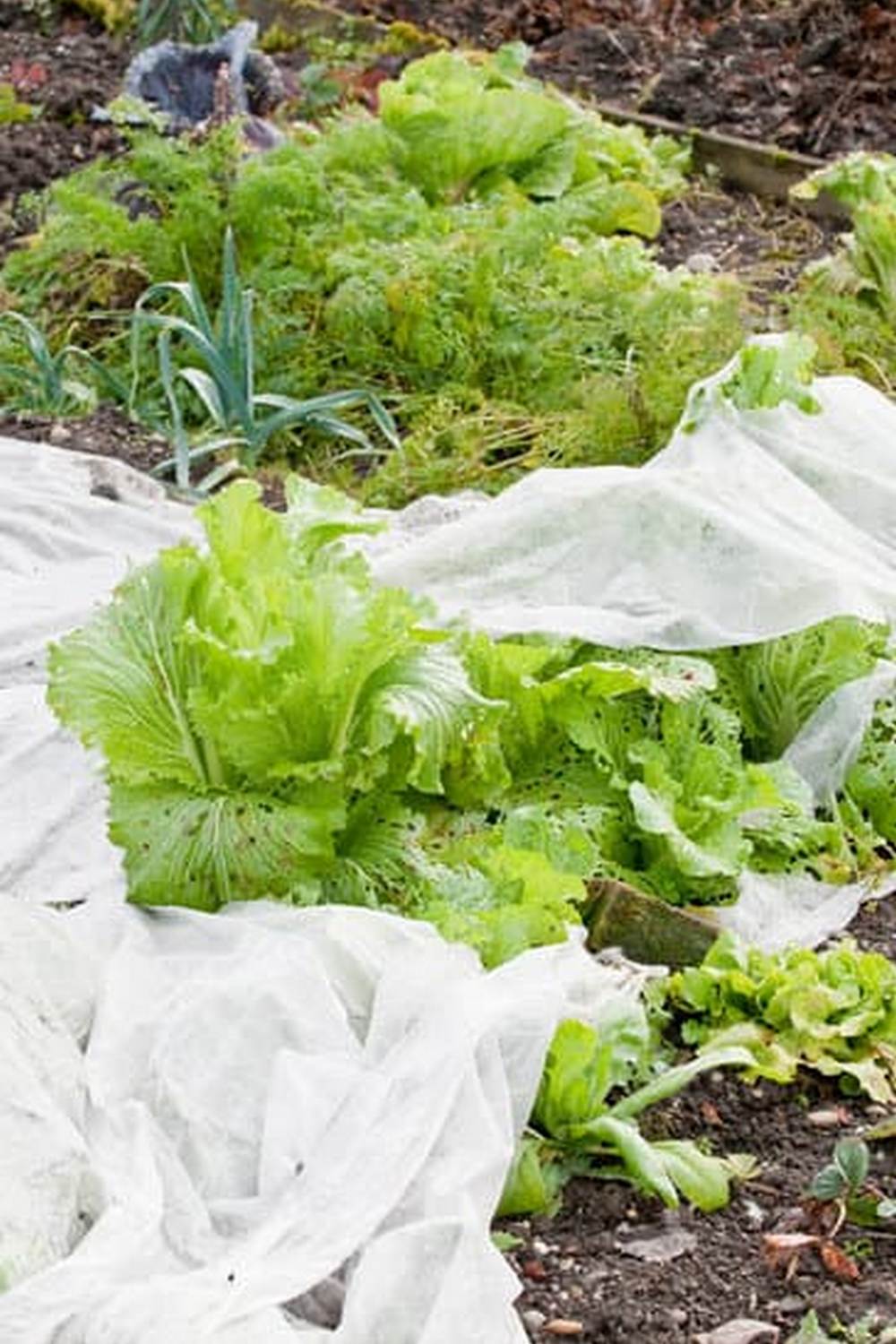Calcium is a crucial element for the healthy growth of vegetable plants in your garden. It plays a vital role in various physiological processes, such as cell wall formation and nutrient uptake. Without an adequate supply of calcium, your vegetable plants may suffer from stunted growth and poor fruit development. In this article, we will explore the importance of calcium in vegetable gardens and how you can ensure that your plants receive the necessary amount of this essential nutrient.
Understanding the role of calcium in plant growth is essential for every gardener. From promoting strong root development to preventing common diseases like blossom end rot, calcium plays a critical role in ensuring the overall health and productivity of your vegetable plants. We will delve into the specific functions of calcium in plant physiology and its impact on the quality and yield of your garden produce.
In addition to discussing the signs of calcium deficiency in vegetable plants, we will also explore different sources of calcium for your garden, including organic and inorganic options. Whether you prefer to use natural amendments like bone meal or gypsum or opt for synthetic fertilizers, there are various ways to supplement your soil with calcium.
We will guide you through the best methods to add calcium to your garden soil and provide tips for maintaining proper calcium levels throughout the growing season.
Understanding the Role of Calcium in Plant Growth
Calcium plays a crucial role in the growth and development of plants, including those in vegetable gardens. It is an essential nutrient that aids in the structure and function of cell walls, helps with enzyme activity, and regulates various physiological processes within the plant. Understanding the specific role of calcium in plant growth is important for ensuring the health and productivity of your vegetable garden.
Cell Wall Structure and Function
One of the primary roles of calcium in plant growth is its contribution to the structure and function of the cell walls. Calcium is responsible for binding pectins, a type of polysaccharide that provides strength and stability to cell walls. Adequate calcium levels promote strong, sturdy cell walls that are better able to support the overall structure of the plant.
Enzyme Activity
Calcium also plays a significant role in enzyme activity within plants. Many enzymes require calcium ions as a cofactor for their proper functioning. These enzymes are involved in various metabolic processes such as photosynthesis, nutrient uptake, and hormone regulation. Without sufficient calcium, these essential enzymatic reactions may be impaired, leading to stunted growth and poor overall health in vegetable plants.
Physiological Processes
In addition to its role in cell wall structure and enzyme activity, calcium also regulates several physiological processes within plants. This includes water movement, membrane permeability, and ion transport. Proper calcium levels contribute to improved water uptake and distribution within the plant, as well as better nutrient absorption. As a result, vegetable plants are better equipped to withstand environmental stressors such as drought or nutrient deficiencies when sufficient calcium is present in the soil.
In summary, understanding the role of calcium in plant growth is essential for maintaining healthy and productive vegetable gardens. From supporting cell wall structure to regulating enzymatic activity and physiological processes, adequate calcium levels are critical for ensuring optimal growth and productivity in your vegetable plants.
Signs of Calcium Deficiency in Vegetable Plants
Calcium deficiency is a common issue in many vegetable gardens and can have detrimental effects on plant growth and overall yield. Understanding the signs of calcium deficiency in vegetable plants is crucial for addressing the problem and ensuring healthy, thriving crops.
Stunted Growth and Deformed Leaves
One of the most noticeable signs of calcium deficiency in vegetable plants is stunted growth and deformed leaves. Plants lacking calcium may exhibit slow or impaired growth, leading to smaller overall size. Additionally, the leaves of affected plants may appear distorted or misshapen, with irregular edges or cupped appearance.
Blossom End Rot
Another telltale sign of calcium deficiency in vegetable plants is the development of blossom end rot, which commonly affects tomatoes, peppers, and squash. This condition causes the fruits to develop dark, sunken spots at their blossom ends, rendering them unappealing and inedible. Blossom end rot is directly linked to insufficient calcium levels in the soil, which hinders the plant’s ability to properly absorb this essential nutrient.
Weak Stems and Root Development
In addition to affecting above-ground growth, calcium deficiency can also impact the strength and structure of a plant’s stems as well as its root system. Plants with insufficient calcium may display weak, easily damaged stems that are prone to breakage. Furthermore, their root development may be impaired, leading to shallow or underdeveloped root systems that struggle to support healthy plant growth and nutrient uptake.
Recognizing these signs of calcium deficiency in your vegetable plants is vital for taking proactive measures to address the issue. By understanding how calcium deficiency manifests in plants, gardeners can effectively implement strategies for adding this crucial nutrient to their garden soil and ensuring optimal growing conditions for their vegetables.
Sources of Calcium in Vegetable Gardens
When it comes to ensuring the health and productivity of your vegetable garden, one of the key elements to consider is calcium. Calcium plays a crucial role in plant growth, as it helps to strengthen cell walls, promotes root development, and aids in the uptake of other essential nutrients. In order to maintain proper calcium levels in your vegetable garden soil, it’s important to understand the different sources of calcium available, including both organic and inorganic options.
Organic sources of calcium can be beneficial for those who prioritize natural and sustainable gardening practices. Some common organic sources of calcium include:
- Crushed eggshells: Eggshells are rich in calcium carbonate and can be crushed and added directly to the soil as a slow-release source of calcium.
- Bone meal: Made from ground animal bones, bone meal is high in calcium and phosphorus, making it a valuable organic fertilizer for vegetable gardens.
- Oyster shell flour: This finely ground powder derived from oyster shells provides a long-lasting source of calcium for plants.
On the other hand, inorganic options for adding calcium to your vegetable garden soil are typically faster-acting and more concentrated. These may include:
- Dolomite lime: This type of lime contains both calcium and magnesium, making it a popular choice for raising pH levels while also providing essential nutrients.
- Gypsum: Often used to improve soil structure, gypsum is high in calcium and can help remedy compacted or clay soils that may inhibit proper nutrient uptake by plants.
- Calcium nitrate: A water-soluble fertilizer that provides an immediate supply of both calcium and nitrogen to plants.
By incorporating a combination of organic and inorganic sources of calcium into your vegetable garden soil, you can ensure that your plants have access to this vital nutrient throughout their growth cycle. Whether you choose organic or inorganic options will depend on your gardening philosophy, specific plant needs, and soil conditions.
Maintaining proper calcium levels in your vegetable garden is essential for healthy plant growth and abundant harvests. With the right combination of organic and inorganic sources, you can provide your plants with the necessary calcium they need to thrive throughout the growing season.
The Best Ways to Add Calcium to Your Vegetable Garden Soil
When it comes to maintaining a healthy and productive vegetable garden, ensuring that your soil has an adequate amount of calcium is crucial. Calcium plays a vital role in plant growth, helping to strengthen cell walls, promote root development, and aid in nutrient uptake. Without sufficient calcium, vegetable plants can experience stunted growth, blossom end rot, and overall poor yield.
There are several effective ways to add calcium to your vegetable garden soil. One common method is by using limestone or agricultural lime, which can help raise the pH levels of acidic soil while also providing a source of calcium. Another option is to use gypsum, which can be especially beneficial for loosening clay soils and providing plants with the necessary calcium without significantly altering the soil pH.
In addition to using organic sources of calcium such as bone meal or eggshells, you can also consider incorporating calcium-rich compost into your garden beds. This not only helps improve soil structure but also gradually releases calcium as the organic matter breaks down.
It’s important to test your soil regularly to monitor its calcium levels and make adjustments as needed. By incorporating these various methods of adding calcium to your vegetable garden soil, you can ensure that your plants have access to this essential nutrient for optimal growth and productivity.
| Method | Benefits |
|---|---|
| Limestone or Agricultural Lime | Raises pH levels and provides a source of calcium |
| Gypsum | Loosens clay soils and supplies plants with necessary calcium |
| Organic Sources (e.g. compost, bone meal) | Improves soil structure and gradually releases calcium as organic matter breaks down |
Tips for Maintaining Proper Calcium Levels in Your Vegetable Garden
Maintaining proper calcium levels in your vegetable garden is crucial for the health and growth of your plants. Calcium plays a vital role in plant cell wall structure, nutrient uptake, enzyme activity, and overall plant development. Without sufficient calcium, vegetables are prone to various problems such as blossom end rot in tomatoes and peppers, stunted growth, and poor fruit quality.
There are several effective ways to ensure that your vegetable garden has adequate calcium levels. One common method is to incorporate calcium-rich amendments into the soil, such as gypsum or agricultural lime. Applying these amendments according to soil test recommendations can help balance the pH levels and provide a steady supply of calcium to your plants.
Another approach to maintain proper calcium levels in your vegetable garden is through the use of organic matter. Compost and other organic materials not only improve soil structure but also contribute essential nutrients, including calcium, to the soil. Regularly adding organic matter to your garden beds can help prevent calcium deficiency in your vegetable plants.
Furthermore, using a balanced fertilizer that contains calcium can also help maintain adequate levels in your vegetable garden. Look for fertilizers with a higher percentage of calcium or specifically formulated for vegetables. It’s important to follow application instructions carefully to avoid over-fertilizing and causing nutrient imbalances that could be detrimental to plant health.
| Calcium Maintenance Method | Description |
|---|---|
| Calcium-rich Amendments | Incorporate gypsum or agricultural lime into the soil according to soil test recommendations. |
| Organic Matter | Add compost regularly to provide an ongoing supply of calcium from organic sources. |
| Balanced Fertilizer | Use a fertilizer with a higher percentage of calcium or designed specifically for vegetables while following application instructions carefully. |
Common Calcium-Related Issues in Vegetable Gardens and How to Address Them
When it comes to growing healthy and thriving vegetable plants, maintaining proper calcium levels in the soil is crucial. However, even with the best intentions and efforts, gardeners may still encounter calcium-related issues that can affect plant growth. Here are some common problems associated with calcium deficiency in vegetable gardens and how to address them:
1. Blossom End Rot: One of the most common signs of calcium deficiency in vegetable plants is blossom end rot, which affects crops such as tomatoes, peppers, and squash. This condition presents as a dark, sunken spot at the bottom of the fruit, ultimately rendering it inedible.
To address this issue, it’s essential to ensure that the soil has sufficient calcium levels before planting. Additionally, using mulch to regulate soil temperature and moisture can help prevent blossom end rot.
2. Stunted Growth: Another indicator of calcium deficiency in vegetable plants is stunted growth. When plants lack adequate calcium, they may exhibit slow or abnormal growth patterns. To address this issue, gardeners can incorporate organic sources of calcium into the soil, such as compost or aged manure. Additionally, applying a balanced fertilizer with a higher percentage of calcium can help promote healthy plant development.
3. Yellowing Leaves: Calcium deficiency can also manifest in yellowing or distorted leaves on vegetable plants. This condition not only affects the plant’s overall appearance but also hinders its ability to photosynthesize effectively. To address this issue, consider adding lime or gypsum to the soil to raise its calcium content gradually.
By being proactive about addressing these common calcium-related issues in your vegetable garden, you can help ensure that your plants receive the necessary nutrients for optimal growth and productivity.
The Impact of Calcium on Vegetable Garden Yield and Quality
When it comes to vegetable garden yield and quality, calcium plays a crucial role in ensuring optimal growth and harvest. Calcium is essential for plant cell wall formation, which is vital for maintaining the structural integrity of the plant. Additionally, it aids in nutrient uptake, enzyme activity, and overall plant health. In this section, we will explore how calcium directly impacts the yield and quality of vegetables in your garden.
One of the key ways that calcium influences vegetable garden yield is by promoting strong and healthy plants. When plants have an adequate supply of calcium, they are better equipped to resist diseases and pest infestations. This means that your plants are more likely to reach maturity without being compromised by external threats, leading to a higher yield of healthy vegetables.
Furthermore, calcium also plays a significant role in improving the quality of vegetables in your garden. Adequate levels of calcium can prevent common disorders such as blossom end rot in tomatoes and peppers, which can affect the appearance and taste of the fruits. Additionally, it contributes to firmer and crisper texture in vegetables like lettuce and cabbage. Thus, by ensuring proper calcium levels in your soil, you can enhance the flavor, texture, and overall appeal of your homegrown produce.
Conclusion
In conclusion, it is clear that calcium plays a vital role in the health and growth of vegetable plants in the garden. Understanding the importance of calcium and how it affects plant growth is crucial for maintaining a productive and healthy vegetable garden. By recognizing the signs of calcium deficiency and knowing the sources of calcium, gardeners can effectively address any issues that arise and ensure their plants receive adequate nutrients.
Adding calcium to the vegetable garden soil can be done through various organic and inorganic options, such as using compost, lime, gypsum, or commercial fertilizers. It is important to choose the best method for adding calcium based on the specific needs of the soil and plants. Additionally, maintaining proper calcium levels in the soil through regular testing and adjusting will help to support optimal plant growth and yield.
Overall, paying attention to calcium levels in the vegetable garden can have a significant impact on the quality and quantity of yield. By addressing common calcium-related issues promptly and ensuring that plants receive adequate nutrients, gardeners can promote strong, healthy growth and enjoy bountiful harvests from their vegetable gardens. Ultimately, understanding and managing calcium for vegetable gardens is essential for successful gardening outcomes.

If you’re looking to get into vegetable gardening, or are just looking for some tips on how to make your current garden better, then you’ve come to the right place! My name is Ethel and I have been gardening for years. In this blog, I’m going to share with you some of my best tips on how to create a successful vegetable garden.





